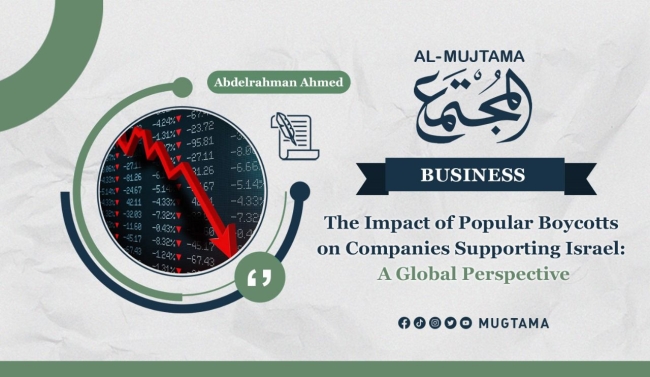The Impact of Popular Boycotts on Companies Supporting Israel: A Global Perspective
Introduction:
In recent times, popular boycotts against companies supporting Israel have emerged as a powerful tool of protest against the Israeli occupation and its actions, particularly in the ongoing conflict in Gaza. This essay explores the significant losses incurred by these companies, the effectiveness of the boycott campaigns, and the broader implications for both the companies involved and the global community.
Boycott Campaigns and Their Success:
The effectiveness of boycott campaigns against companies perceived to support the Israeli occupation is evident in the substantial losses reported by these entities. Analysts, including Mustafa Fahmi, CEO of Strategies and Emerging Markets at Fortress Investment, emphasize that these companies are facing severe consequences due to the global outcry against their affiliations with the Israeli military actions. The impact is not only restricted to the Middle East, as Fahmi suggests but also extends globally, affecting parent companies headquartered in various countries.
Case Study: Starbucks and Ongoing Challenges:
Starbucks, a global coffeehouse chain, serves as a pertinent case study in understanding the challenges faced by companies supporting Israel. Despite promotional efforts, Starbucks has been unable to change consumer perceptions, with the global boycott persisting. Fahmi predicts dire financial results for the company's fourth quarter, indicating the sustained and widespread impact of the boycott on its operations.
Higher-Level Boycotts and Diplomatic Repercussions:
The essay also delves into higher-level boycotts initiated by countries such as Turkey and Jordan. Turkey's decision to suspend energy cooperation plans with Israel in response to the aggression on Gaza underscores how diplomatic relations can be influenced by popular sentiment. Similarly, Jordan's refusal to sign an energy-for-water exchange agreement with Tel Aviv during the conflict highlights the diplomatic repercussions of the ongoing situation.
Economic and Social Consequences for Israel:
The economic consequences of the boycotts on Israel are underscored by a report from the Rand Corporation, revealing cumulative losses of approximately $15 billion between 2013 and 2014. This economic impact has resulted in a notable 3.4% decrease in Israel's per capita GDP. Beyond financial ramifications, the boycotts serve as a global expression of disapproval for Israel's actions in Gaza, indicating a shift in international sentiment.
Support for Local Products and Ethical Consumerism:
One of the significant outcomes of the popular boycotts is the shift towards supporting local products. Consumers in several Arab and Islamic countries are actively choosing to endorse products that align with ethical considerations, further emphasizing the power of collective action in influencing consumer behavior.
Conclusion:
In conclusion, the popular boycotts against companies supporting Israel have proven to be a formidable force in holding these entities accountable for their affiliations. The global impact on financial standings, diplomatic relations, and consumer behavior demonstrates the potential for popular movements to shape the socio-economic landscape. As the world witnesses the ongoing conflict and its consequences, the role of these boycotts becomes increasingly pivotal in fostering change and influencing corporate responsibility on the international stage.
Source: Muhammad Afzaz - Al Jazeera Net


